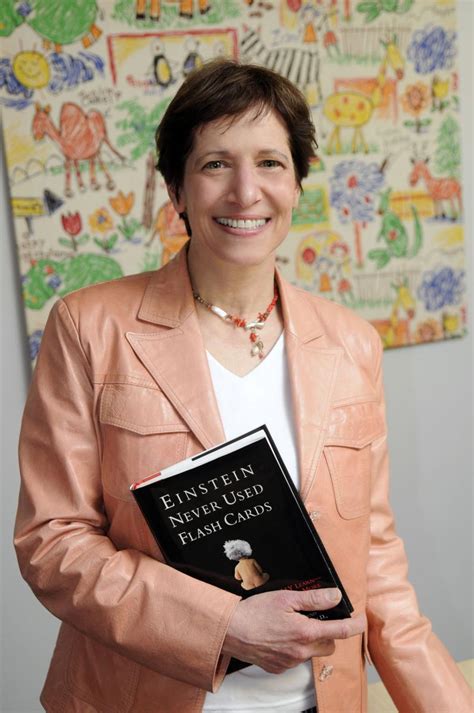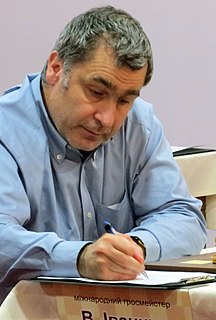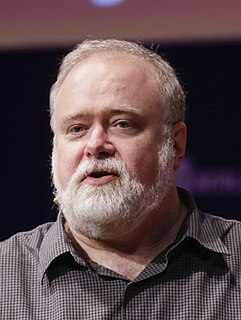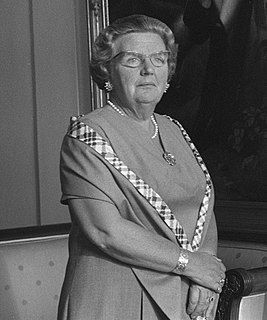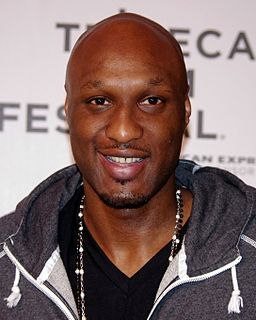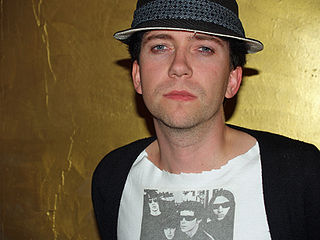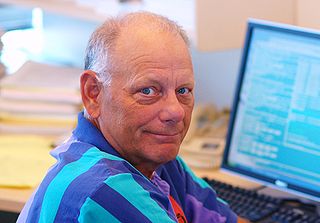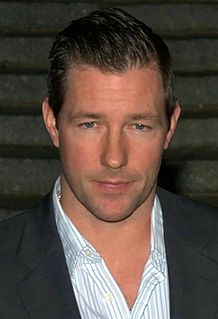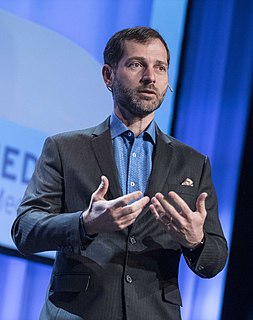Top 1200 Personal Computers Quotes & Sayings - Page 3
Explore popular Personal Computers quotes.
Last updated on April 20, 2025.
Computers get better, faster than anything else ever. A child's PlayStation today is more powerful than a military supercomputer from 1996. But our brains are wired for a linear world. As a result, exponential trends take us by surprise. I used to teach my students that there are some things, you know, computers just aren't good at like driving a car through traffic.
We're training kids to do what computers do, which is spit back facts. And computers are always going to be better than human beings at that. But what they're not going to be better at is being social, navigating relationships, being citizens in a community. So we need to change the whole definition of what success in school, and out of school, means.
It took me thirty-six years; and, in some fifty stories, ranging in length from short-shorts to novels, I think I must have touched, in one way or another, on every aspect of computers and computerization. And (mark this!) I did it without ever knowing anything at all about computers in any real sense. To this day, I don't. I am totally inept with machinery... on my typewriter I turn out books at the contemptible rate of one a month
There's definitely some pieces in there that reflect on my personal life, but really, they aren't as personal as everybody thinks they are. I would like them to be more personal. The emotions, the songs themselves are personal. I can't do it - I've tried to write personally and it just doesn't seem to work. It would be too obvious. Some things that you could read in could fit into anyone's life that had any amount of pain at all. It's pretty cliche'.
The piety of "having a personal relationship with Christ" ... is alien to the New Testament... but evangelicals elevate it to the shibboleth of salvation! Unless you have a personal relationship with Jesus, buster, one day you will be boiling in Hell. Sheesh! Talk about the fury of a personal savior scorned!
The Hacker Ethic: Access to computers--and anything which might teach you something about the way the world works--should be unlimited and total.
Always yield to the Hands-On Imperative!
All information should be free.
Mistrust authority--promote decentralization.
Hackers should be judged by their hacking, not bogus criteria such as degrees, age, race, or position.
You can create art and beauty on a computer.
Computers can change your life for the better.
It's a very special generation, because during our careers the computer entered chess. So we know how to play without computers, which is also important. We can analyse without computers. I am not saying that younger players cannot do this, but we are more in the habit of doing this. That's important to improve your chess understanding.
I've been asked to explain why I don't worry much about the topics of privacy threat...One reason is that these scenarios seem to assume that there will be large, monolithic bureaucracies...that are capable of harnessing computers for one-way surveillance of an unsuspecting populace. I've come to feel that computation just doesn't work that way. Being afraid of monolithic organizations especially when they have computers, is like being afraid of really big gorillas especially when they are on fire.
When I was young, there was an amazing publication called The Whole Earth Catalog, which was one of the bibles of my generation. It was created by a fellow named Stewart Brand not far from here in Menlo Park, and he brought it to life with his poetic touch. This was in the late 1960's, before personal computers and desktop publishing, so it was all made with typewriters, scissors, and polaroid cameras. It was sort of like Google in paperback form, 35 years before Google came along: it was idealistic, and overflowing with neat tools and great notions.
While we bemoan the decline of literacy, computers discount words in favor of pictures and pictures in favor of video. While we fret about the decreasing cogency of public debate, computers dismiss linear argument and promote fast, shallow romps across the information landscape. While we worry about basic skills, we allow into the classroom software that will do a student's arithmetic or correct his spelling.
I think we are obsessed in the U.S. with the personal, in ways that blind us to more important issues of life. I just think if we could take all the obsession with the personal (inaudible), and personal judgment and have people be concerned about the environment, what a different world we would live in.
The idea that hardware on networks should just be caches for movable process descriptions and the processes themselves goes back quite a ways. There's a real sense in which MS and Apple never understood networking or operating systems (or what objects really are), and when they decided to beef up their OSs, they went to (different) very old bad mainframe models of OS design to try to adapt to personal computers.
I think computers have changed things tremendously. At one time, you tended to take the rough with the smooth. But now, because you can go back and stop and start, and have a limitless amount of tracks if anything looks remotely good, we keep it. You've got to go through the agony of sounding very human at first, and then you work on it with the aid of technology. Computers have revolutionized things in many ways allowing me to work to a standard I could have only joked about fourty years ago.
I was always interested in technology. When personal computers came out, I was one of the first to pick one up and begin playing with it. My hobbies tend to be not about going fishing or hiking, but about playing on machines. Just like some people like helicopters and tanks and cars, I like technology a lot.
Until computers and robots make quantum advances, they basically remain adding machines: capable only of doing things in which all the variables are controlled and predictable. Robots are bad at pattern recognition and certainly at common sense. That's why computers can beat humans in chess but can't have even a basic conversation with a six-year-old.
Computers and computing are all around us. Some computing is highly visible, like your laptop. But this is only part of a computing iceberg. A lot more lies hidden below the surface. We don't see and usually don't think about the computers inside appliances, cars, airplanes, cameras, smartphones, GPS navigators and games.
We couldn't build quantum computers unless the universe were quantum and computing. We can build such machines because the universe is storing and processing information in the quantum realm. When we build quantum computers, we're hijacking that underlying computation in order to make it do things we want: little and/or/not calculations. We're hacking into the universe.
The process has now run full circle: Preaching originates in personal counseling; preaching is personal counseling on a group basis; personal counseling originates in preaching. Personal counseling imparts to the preacher a practical familiarity with human nature which he would not otherwise obtain.
With both people and computers on the job, computer error can be more quickly tracked down and corrected by people and, conversely, human error can be more quickly corrected by computers. What it amounts to is that nothing serious can happen unless human error and computer error take place simultaneously. And that hardly ever happens.
I claim that this bookless library is a dream, a hallucination of on-line addicts; network neophytes, and library-automation insiders...Instead, I suspect computers will deviously chew away at libraries from the inside. They'll eat up book budgets and require librarians that are more comfortable with computers than with children and scholars. Libraries will become adept at supplying the public with fast, low-quality information. The result won't be a library without books--it'll be a library without value.
I don't really care about labels that much. I wouldn't really call our music retro. There are influences of things from the past, which there is in everything. I think we're quite a modern band, actually. We don't record with old equipment. We use computers and programmed drums. We don't use any guitar amplifiers. We're very much a modern band in the sense that we love computers and what they can do to music. I guess we're just good at a different sound.
In the summer of 1988, I received an interesting call from Bill Gates at Microsoft. He asked whether I'd like to come over and talk about building a new operating system at Microsoft for personal computers. What Bill had to offer was the opportunity to build another operating system, one that was portable.
Chess is a unique battlefield for human minds and computers - human intuition, our creativity, fantasy, our logic, versus the brute force of calculation and a very small portion of accumulated knowledge infused by other human beings. So in chess we can compare these two incompatible things and probably make projections into our future. Is there danger that the human mind will be overshadowed by the power of computers, or we can still survive?
Everybody remembers numbers and computers remember numbers. People remember procedures and computers certainly remember procedures. But the other thing that's still important is that your perception as a human is affected subtly by all this stuff that you can't quite articulate. You run your life according to all this stuff that's happened to you. All of your memories affect everything you do whereas with a computer, there's adaptive software and things, but it's more literal.
Most people are excited about themselves. Personal genome will deliver for inexpensively something about science to which you can relate. Just like computers are becoming something to which you can relate. It should be even easier to relate to your own biology, and I hope that will be one of the ways we get broader literacy in science.
The idea of having more technology solving this idea of hyperactive lifestyle is not really the mainstream problem. I think the real innovation that’s going to be rewarded will be on things like, let’s convert our computers from being tools to being companions. Let’s convert our computers from being utilitarian to being enlightening. These are human needs.
Every computer divides itself into its hardware and its software, the machine host to its algorithm, the human being to his mind. It is hardly surprising that men and women have done what computers now do long before computers could do anything at all. The dissociation between mind and matter in men and machines is very striking; it suggests that almost any stable and reliable organization of material objects can execute an algorithm and so come to command some form of intelligence.
I've always liked making things that don't deny the medium that they're made in. If it's collage, I'm happy for it to look like that. If it's a film made with computers, I don't mind that it looks like a film made with computers as long as it still has a feeling or a mood or an atmosphere that is relevant.
Without computers, the government would be unable to function at the level of effectiveness and efficiency that we have come to expect. . . . Today's government uses computers which are capable of cranking out millions of documents per day without any regard whatsoever for their content, thereby freeing government employees for more important responsibilities, such as not answering their phones.
It doesn't matter how many televisions and computers and pieces of stereo equipment the Chinese send to us, even if they're sending them to us only in return for some funny, little, green pieces of paper. That is a balanced trade. They got what they wanted: the green pieces of paper. We got what we wanted: the plush toys, the computers, the stereo components.
The theme of the diary is always the personal, but it does not mean only a personal story: it means a personal relationship to all things and people. The personal, if it is deep enough, becomes universal, mythical, symbolic; I never generalize, intellectualise. I see, I hear, I feel. These are my primitive elements of discovery. Music, dance, poetry and painting are the channels for emotion. It is through them that experience penetrates our bloodstream.
People probably long for something genuinely personal in a society where the personal is often indistinguishable from the "personalized." Maybe the poetry audience member is searching for his or her own "personal space" and they expect the poet to be a sort of avatar of the private life. But that sort of representation is distasteful to me. Asking a poet to represent the personal life is, paradoxically, to turn the poet into something other than a person.


